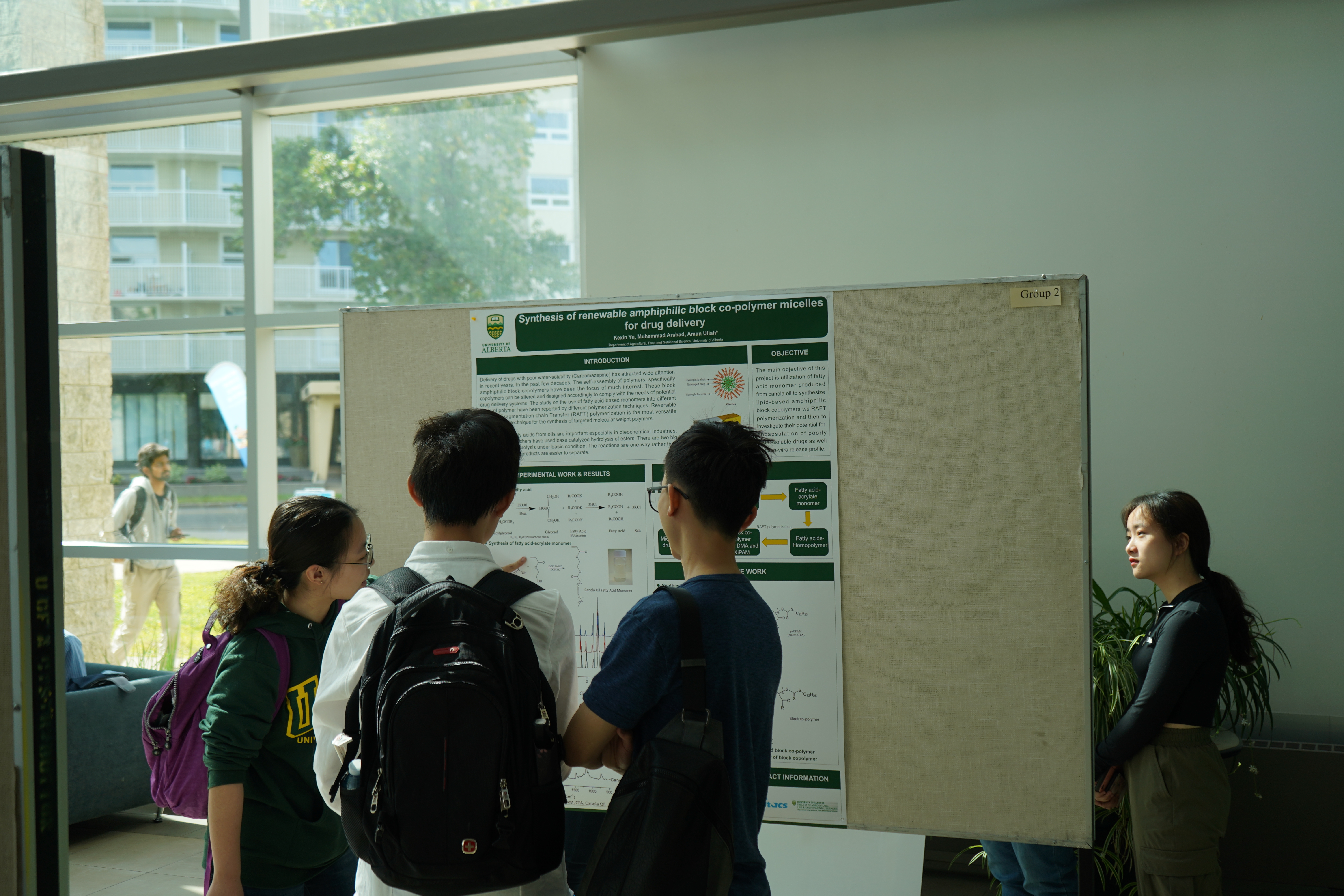Presenting Research
Upcoming Research Symposiums
Members of the campus community and the public are welcome and encouraged to join us as visiting international research internship participants share about their projects.
9:30-11:30am | Thursday, July 4th, 2024 | Telus Centre, 11104 87 Avenue NW
9:30-11:30am | Thursday, August 15th, 2024 | Telus Centre, 11104 87 Avenue NW
Research Symposium will feature ten 3 Minute Thesis (3MT) presentations in Telus 150 Auditorium, followed by a research poster symposium in the Telus Centre Atrium for all of our research interns to showcase the research projects they are contributing to on our campuses.
Certificate ceremony from 11:30am-noon after each research symposium.
Presenting Research
One important aspect of academic literacy is the ability to concisely and clearly communicate about research projects to audiences. Sharing research findings takes practice. As such, it has been a tradition at the University of Alberta to give international research internship participants an opportunity to communicate their research projects to the campus community in a supportive, collaborative environment.
Presenting research has typically taken the form of research poster symposiums held between July-September, with alternate presentation opportunities offered to visiting researchers on campus in March at the annual Festival of Undergraduate Research and Creative Activities (FURCA). There have also been 3 Minute Thesis (3MT) videos created by past research internship participants, as well as delivery of live, in-person 3MT recently.
Inspired by Three Minute Thesis, or 3MT for short, a spoken word thesis competition that started at the University of Queensland, Australia, some of our research internship participants will summarize their research projects in a presentation that is three minutes in length.
Requirements
Participants must have the consent of their supervising U of A faculty member to share the research.
The specific requirements for Research Posters are the following:
- 36" x 48" Portrait (36 inches wide by 48 inches high)

The specific requirements for 3MT are the following:
- Participants are allowed three minutes only—no more, no less;
- Participants are restricted to spoken words only (so no singing or dancing!);
- Participants can only show one static slide (so no animations, music and electronic media);
- Participants are expected to contextualize their research presentations for a non-specialist audience. i.e., how would you explain your research to a child or grandparent who does not study your field?
- Participants should limit the use of technical jargon or scientific terms that only someone else in the research area would know.
Preparing a 3MT requires scripting a research narrative as a story with emotional as well as intellectual impact. It is important to find ways to establish interpersonal rapport with non-specialist audiences, as a lot of research is funded by grants and writing grant proposals requires you to explain your research to non-specialist audiences as well as experts in your field. One way to do this is to try using analogies to relate your research project to common human experiences that unite us all, such as music or sports. Before you prepare your own 3MT, check out some winning 3MT presentations for reference (there are many on Youtube and other video hosting sites).
Judging Rubrics
The criteria for judging the content and communication for our 3MT video presentations are borrowed from the Queensland criteria (The University of Queensland, 2021).
|
Content |
|
|
Communication |
|
Questions? Contact intern@ualberta.ca.